News, resources and ideas for cross-sector collaborations that engage STEM learners everywhere
EVENTS
Tuesday, May 17, 9:00AM ET: Release of the Nation’s Report Card: Technology and Engineering Literacy, by the National Assessment Governing Board and the National Center 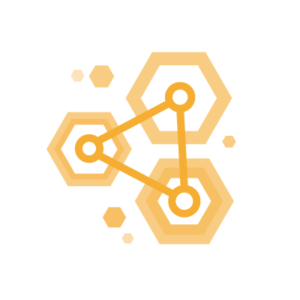 for Education Statistics. The report card measures how students use and evaluate technology and principles of engineering to solve real-world problems. For more information about the event, visit The Nation’s Report Card: Technology and Engineering Literacy registration page. Please forward this invitation to your colleagues. If you have questions about the event, contact Chelsea Radler at (732) 977-8681 or chelsea.radler@thedc-group.com.
for Education Statistics. The report card measures how students use and evaluate technology and principles of engineering to solve real-world problems. For more information about the event, visit The Nation’s Report Card: Technology and Engineering Literacy registration page. Please forward this invitation to your colleagues. If you have questions about the event, contact Chelsea Radler at (732) 977-8681 or chelsea.radler@thedc-group.com.
May 17th – 23rd, 2016: Advancing STEM for All: NSF 2016 Teaching and Learning Video Showcase. The showcase will feature 150+ projects showcasing three-minute videos of their innovative work broadening participation and access to STEM. Researchers, practitioners, administrators, policy makers and the general public are invited to view the videos and to interact with each of the presenters online. Access the site here.
May 18-20, 2016: U.S. News STEM Solutions 5th National Leadership Conference, Baltimore, MD. Focused on teaching, inspiring and hiring the workforce of tomorrow by building skills and increasing STEM diversity. The STEM Learning Ecosystems Initiative will also announce Cohort 2 at the conference. Register.
May 23-25, 2016: Advance CTE’s Annual Spring Meeting. Washington DC. Engage in collaborative discussions with national resource experts, and get an in-depth look at the most important topics in the Career and Technical Education field, including the latest state-level trends and federal policy updates on Perkins and the new Every Student Succeeds Act. Register.
May 31-June 1, 2016: Indigenous Worldviews in Informal Science Education (I-WISE) Workshop, Washington, DC. The workshop will convene principal investigators, educators, scientists, policymakers, learning researchers, and youth to advance research aimed at the convergent margin of Native and Western science in the field of informal STEM learning. For more information: http://iwiseconference.org/
July 10-12, 2016: Computer Science Teachers Association (CSTA) Annual Conference, San Diego, CA. CSTA 2016 is a professional development opportunity for CS and IT teachers/administrators who need practical, classroom-focused information to help prepare their students for the future. Register.
Sept 20 – 22, 2016: StriveTogether Cradle to Career Network Convening, Memphis, TN. This conference focuses on collective impact partnerships in communities across the country and how they can help make education equity a reality. This year’s conference theme is Rise Up: Education Excellence for Every Child. For more information, contact Kelly Robinson at robinsonk@strivetogether.org.
September 20-22, 2016: Science Media Awards & Summit in the Hub 2016. More than 300 science media stakeholders will gather to celebrate exceptional media, cutting-edge discoveries. Learn more: http://www.sciencemediasummit.org/
September 24–27, 2016: Association of Science Technology Centers (ASTC) Annual Conference hosted by the Museum of Science and Industry in Tampa, Florida – partner in the Tampa Pay STEM Network ecosystem. Register.
October 18-22, 2016: North American Association for Environmental Education 2016 Conference and Research Symposium: From Inspiration to Impact. Annual conference for environmental education professionals, from classroom teachers and teacher educators to nature center staff to climate science researchers and everyone in between. Learn more here.
Oct 24 – 26, 2016: Summer Changes Everything Annual Conference Joins with School’s Out Washington’s Bridge Conference, Seattle, Washington. The National Summer Learning Association joins with School’s Out Washington to present Dare to Disrupt! The Pathway to Excellence and Equity in Education. This conference attracts practitioners, policymakers, funders and researchers across the OST spectrum and includes pre-conference sessions, workshops, and meetings focused on summer learning. Learn more here.
REPORTS, NEWS AND RESOURCES
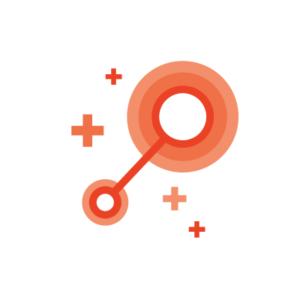 Can Cross-Sector Collaborations Learn from Experience? In a new essay on the Collective Impact blog, Geoff Mulgan from the UK funder Nesta challenges cross-sector collaborators to become much more intentional about learning from the successes and challenges of past efforts. He points out two such lessons:
Can Cross-Sector Collaborations Learn from Experience? In a new essay on the Collective Impact blog, Geoff Mulgan from the UK funder Nesta challenges cross-sector collaborators to become much more intentional about learning from the successes and challenges of past efforts. He points out two such lessons:
- in moving cross-sector efforts forward: “structures help, but are less important than processes, and that these in turn are less important than cultures.”
- “Organisers of collaboration often want the participants to get back to first principles, and then move logically on to actions. A great deal of experience, and political science, shows that this is mistaken. It is much harder to get a disparate group to agree on underlying principles and values than it is to get them to agree on actions.” Read more here.
New Tools for Systems Thinkers: FSG is “working to identify, codify, and design a framework and a set of tools that can support social change practitioners in improving their awareness and fluency around how to build systems thinking into their work.” Hallie Preskill and Srik Gopal provide an overview of their new framework and the upcoming blog series. Read here. Marcie Parkhurst provides more explanation and an overview of the Systems Matrix tool. Read here.
Policy News
State Policies Impacting CTE: 2015 Year in Review: This report by the Association for Career and Technical Education (ACTE) and the National Association of State Directors of Career Technical Education Consortium (NASDCTEc) takes a state-by-state look at CTE-related policies passed in 2015, while drawing out major themes and trends from the year. Read the report here.
Advancing Deeper Learning Under ESSA: Seven Priorities: This paper by Jobs for the Future. This brief recommends seven ways for supporters of deeper learning to take advantage of the changing education policy landscape, as authority shifts from the federal government to states and local districts. The authors outline priorities to help the nation’s high schools move from a largely inequitable system to one that prepares all students for college and careers, with the full range of academic, personal, and social skills needed for life success. Read here.
Citizen Science – New Resources:
- New Fed Gov. Citizen Science Website Launched: Last month, the federal government launched gov, a new website designed to accelerate the use of crowdsourcing and citizen science across the U.S. government. The site provides a portal to three key assets for federal practitioners: a searchable catalog of federally supported citizen science projects, a toolkit to assist with designing and maintaining projects, and a gateway to a federal community of practice to share best practices.
- In March, the American Society for Microbiology (ASM) released a Scientific Citizenship-themed issue of the Journal of Microbiology & Biology Education. Articles address research, data collection, curricula, outcomes, non-traditional outreach, resources and more. Read any of the articles
Integrating 21st Century Competencies – Lessons from Global Cities Most countries agree that educational success in the 21st century must include achievement on a broad set of outcomes beyond academics. Asia Society’s Global Cities Education Network – which includes the American cities of New York, Denver and Seattle, as well as the Asian cities of Singapore, Hiroshima, Shanghai and Seoul – is designed to share strategies and challenges to integrating 21st century skills into school districts, and lessons learned from pilots.
Nominations Sought for STEM Mentoring Awards Sponsored by US 2020, the second annual STEM Mentoring Awards will celebrate and encourage exceptional work in the STEM mentoring field and raise awareness of STEM mentoring as an important tool for education reform. This year’s awards include Excellence in Volunteer Experience, Excellence in Corporate Culture, and Excellence in Public-Private Partnership. Find out more and register for informational webinars about the awards here.
How to Improve Science Teaching The authors of a recent National Academies report, Science Teachers’ Learning found “no evidence that elementary, middle, and high school science teachers have adequately rigorous opportunities to learn content related to the courses they teach, the new vision of science education, or how to teach to that new vision in challenging and effective ways.” Among other recommendations, the authors call for school districts to partner with professional networks, institutions of higher education, cultural institutions, and the broader scientific community” to create professional development opportunities for teachers. Read the full report here.
States’ Teacher Mentoring and Induction Programs Fall Short Approximately one in five U.S. teachers is in the first three years of teaching; and yet most states still provide insufficient mentoring and induction support for beginning educators, according to a new report from New Teacher Center (NTC), a national nonprofit organization committed to new teacher induction. The report, Support from the Start: A 50-State Review of Policies on New Educator Induction and Mentoring, evaluates state educator induction policies for: mentor quality; time available for mentors and new teachers to interact; funding for induction; and overall program quality, standards, and accountability. Policy changes to boost the effectiveness and impact of new teacher support programs could have a significant impact on schools in high-poverty neighborhoods, which typically have higher concentrations of new educators. Read the full report here.
The Science (and Art) of Youth “Readiness” The Forum for Youth Investment’s Readiness Project defines “readiness” as the “dynamic combination of being prepared and willing to take advantage of life’s opportunities while managing life’s challenges.” Their new paper, The Science (and Art) of Youth Readiness (PDF), synthesizes research backing up the concept of readiness and defines the skills, abilities and mindsets that make up readiness. It also defines practices to shape the behavior of adults and systems to support youth readiness, and barriers – or ‘traps and gaps’ that prevent youth from achieving readiness. The goal of the paper is to facilitate cross-system and youth-focused policy and practice discussions everywhere youth spend their time. Read or download the full paper.
Helping Youth Overcome Math Anxiety An article in the Spring 2016 issue of the Afterschool Matters Journal, “Math is Like a Scary Movie: Helping Young People Overcome Math Anxiety,” academic support specialist Margaret Kulkin suggests that afterschool educators “appreciate the role of emotions in learning. The point is not just to present students with fun activities. We have to address their anxiety to help them find their inner mathematicians. Using real-world experiences to teach math concepts will help them shift their focus away from anxiety about their performance so they can engage in learning.” Read here.
How to Communicate About Chemistry Chemistry plays a critical role in daily life, impacting areas such as medicine and health, consumer products, energy production, the ecosystem, and many other areas. Yet most people do not understand chemistry at all. The new National Academy report Effective Chemistry Communication in Informal Environments aims to improve general understanding of chemistry by offering a guide to creating effective engagement and learning activities in informal settings. Published by the National Academies of Sciences, Engineering, and Medicine and funded by NSF. Read here.
SPOTLIGHT ON GIRLS IN STEM
Changing the Game for Girls in STEM A new report released by Techbridge identifies promising strategies – and calls for funders to adopt new approaches to ensure all girls – and particularly low-income girls of color – have access to high quality STEM learning opportunities that engage and interest them to pursue STEM education and careers.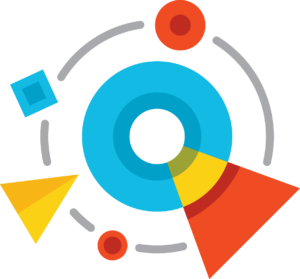
Role of Teachers is Key to Building Girls’ Science Identity A recent STELAR blog post details the scale-up of CompuGirls, Phoenix-based program that uses social justice-based multimedia projects to engage young women in activities that increase knowledge, understanding, and awareness of careers in STEM and information and communications technology (ICT). PI Kimberly Scott of Arizona State noted, “probably the most important learning surrounds the role of teachers in the program. For CompuGirls to be successful, teachers really have to be willing to embrace the role of facilitator, as opposed to director. This can be a difficult shift in perspective for some teachers. To re-shape traditional thinking, we are constantly working to hone and provide quality professional development that includes culturally responsive techniques that allow for open dialogue and student led projects.” Read the entire post here.
Women and Girls in STEM: Useful Infographics to Download and Share
Although women held 57% of the professional occupations overall in the US in 2015, they held just 25% of computing occupations in the U.S. Download and use an infographic with updated statistics on women and technology by the National Center for Women & Information Technology (NCWIT) at Women and IT: By the Numbers. The National Girls Collaborative Project also has a useful infographic presenting the most compelling statistics for girls and women in STEM K-12 education, higher education, and the workforce. Download the NGCP infographic here.
Designing Science OST Program to Promote Girls Science Identity In another article in the current Afterschool Matters Journal, “I Could See Myself as a Scientist”: The Potential of Out-of-School Time Programs to Influence Girls’ Identities in Science,” Kelly Riedinger and Amy Taylor focus on identity development as a potential key to encouraging more girls to enter STEM fields. They offer 6 recommendations for designing OST science learning programs to nurture girls’ science identities, connecting to and building on other life experiences, including encouraging girls’ input into program design/content, offering opportunities for girls to share their expertise, engage in authentic learning experiences that mirror the work of scientists, and supporting social interactions, Read here.
SciGirls Videos: Women in STEM 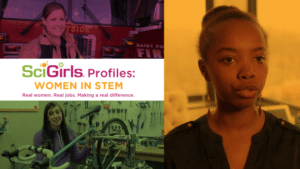 The National Girls Collaborative Project announces the premiere of SciGirls Profiles: Women in STEM, a collection of twelve short videos available to view online. These profiles feature women innovators, problem-solvers, and dreamers who are passionate about their work, hobbies, families, and helping to make the world a better place.
The National Girls Collaborative Project announces the premiere of SciGirls Profiles: Women in STEM, a collection of twelve short videos available to view online. These profiles feature women innovators, problem-solvers, and dreamers who are passionate about their work, hobbies, families, and helping to make the world a better place.
FUNDING NEWS AND RESOURCES
Management Assistance Group and Grantmakers for Effective organizations have assembled a new Systems Grantmaking Resource Guide. Read more here.
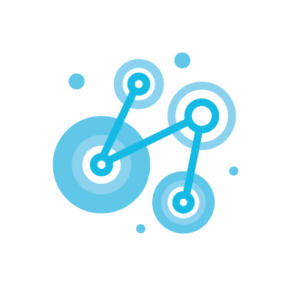 The National Science Foundation Robert Noyce Teacher Scholarship seeks to encourage talented science, technology, engineering, and mathematics majors and professionals to become K-12 STEM teachers. The program invites creative and innovative proposals that address the critical need for recruiting and preparing highly effective K-12 STEM teachers, especially in high-need local educational agencies. The program offers 4 tracks: 1: Robert Noyce Teacher Scholarships and Stipends; 2: NSF Teaching Fellowships; 3: NSF Master Teaching Fellowships; and 4: Noyce Research. In addition, Capacity Building proposals are accepted a future Track 1, 2, or 3 proposal. Deadline: September 6, 2016
The National Science Foundation Robert Noyce Teacher Scholarship seeks to encourage talented science, technology, engineering, and mathematics majors and professionals to become K-12 STEM teachers. The program invites creative and innovative proposals that address the critical need for recruiting and preparing highly effective K-12 STEM teachers, especially in high-need local educational agencies. The program offers 4 tracks: 1: Robert Noyce Teacher Scholarships and Stipends; 2: NSF Teaching Fellowships; 3: NSF Master Teaching Fellowships; and 4: Noyce Research. In addition, Capacity Building proposals are accepted a future Track 1, 2, or 3 proposal. Deadline: September 6, 2016
US Ed Releases Guide to Using Federal Ed Funds for STEM On April 13, the U.S. Department of Education released a “Dear Colleague” letter to states, school districts, schools and education partners on how to maximize federal funds to support and enhance innovative science, technology, engineering and math (STEM) education for all students. More here.
Guide to Grants for STEM, EdTech, and Professional Development Dreambox Learning offers a useful guide to accessing grants for STEM and teacher professional development. Written with K12 classroom teachers as the audience in mind, yet this guide is useful for a broader set of stakeholders. More here.
The Connection includes ideas and resources to support your work cultivating STEM learning ecosystems in your communities. Please share ideas and news for inclusion with ktraphagen@stemnext.org.

